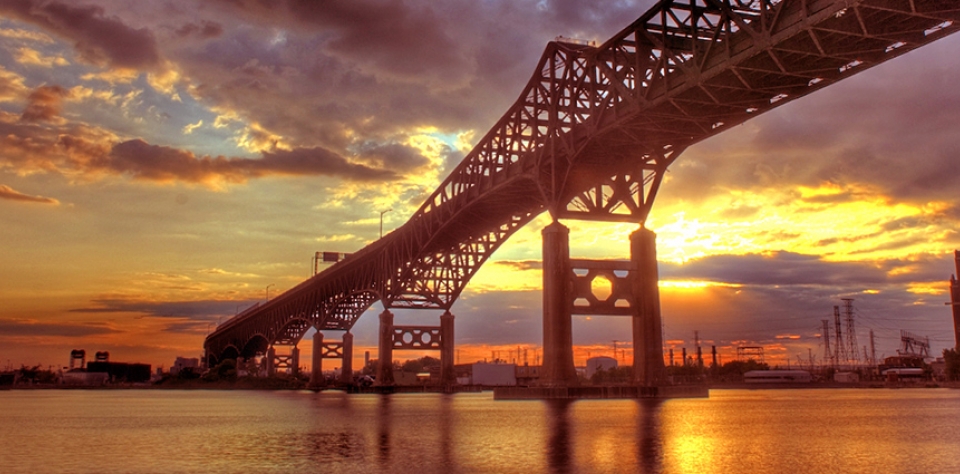Blog
04.09 /14

The Pulaski Skyway Rehabilitation: Dream or Nightmare?
10 years ago
On April 12th a two year rehabilitation project will close northbound lanes on the Pulaski Skyway. For 82 years the super highway has been connecting New Jersey commuters from Newark to Jersey City and back, attaining fame along the way.
The Pulaski Skyway was christened after a polish military general who helped lead Continental troops in the American Revolution. It opened in 1932, as one of the nation's first "Super Highways." Six years later it was the setting for a statewide panic, as radio theatre broadcast convinced listeners that aliens had landed on the road. More recently it stood proudly in the background of the Sopranos opening credits.
Motorists are fond of the historical structure but irritated with the crumbling roads. The rehabilitation project will spend over a billion dollars to extend the life of the Pulaski another 75 years. It will replace the entire 3 1/2 mile riding surface, along with support beams and a couple deteriorating viaducts.
Parsons Brinckerhoff, the lead design firm of the project, considered all options before deciding to close the highway. One idea was to restrict construction to night time and weekends but they realized another four years would be added to the schedule. Also, if the night crews ever ran into a problem they might not be able to open the highway again in the morning. Traffic would be rerouted without warning. It was decided that having a prolonged, planned closure would be better for everyone involved.
Even so, the planned closure has commuters rattled. Transportation Commissioner Jim Simpson estimates that 35,000 vehicles will have to be rerouted every day. He confesses traffic will be difficult at first but expects things to even out after a few weeks.
Several other routes are preparing for the influx of commuters. The New Jersey Turnpike will open its shoulder as a third lane during peak hours, twice a day. The Port Authority of New York and New Jersey (PATH) intends to increase departure frequencies from Penn Station, providing an extra five thousand seats to passengers. The 1 and 9 truck route will be widened to accommodate 700 more vehicles per hour.
The DOT is encouraging people to car pool but Janna Chernetz, an advocate for the Tri-State Transportation campaign, says there is no incentive to. She would like to see regulations put into place that prohibit single occupant cars during rush hour, but these kinds of laws are not even being considered.
Despite the several existing alternate routes, citizens are still concerned. They worry about the added cost of gas and tolls, and the extended amount of time they will have to spend traveling to work. Both officials and commuters expect the closing of the Pulaski Skyway to be a nightmare. The rehabilitation, however, is expected to be well worth the wait.

